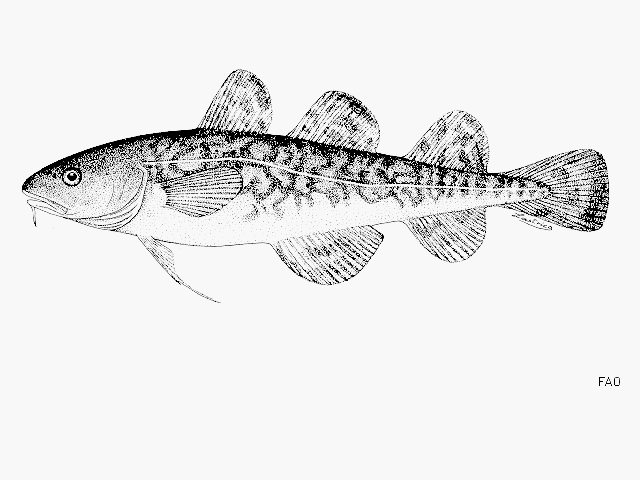| Gadidae (Cods and haddocks) |
| 38.1 cm TL (male/unsexed) |
|
demersal; freshwater; brackish; marine; depth range 0 - 69 m, anadromous |
| Northwest Atlantic: southern Labrador in Canada to Virginia in USA. |
|
Dorsal spines (total): 0-0; Anal spines: 0-0. Body elongated; head small; eyes relatively small. Pelvic fins with a slightly elongated filament. Olive green brown or yellow dorsally, paler ventrally; with dark mottling on sides and fins. |
| Found in coastal, brackish and fresh water, landlocked in several lakes. Feeds mostly on small crustaceans, (especially shrimps and amphipods); also worms, small mollusks, squids and fishes (smelt, sticklebacks, striped bass, alewives, shed, herring and sculpins (Ref. 5951)) (Ref. 1371). |
|
Least Concern (LC); Date assessed: 01 March 2012 Ref. (130435)
|
| harmless |
Source and more info: www.fishbase.org. For personal, classroom, and other internal use only. Not for publication.

